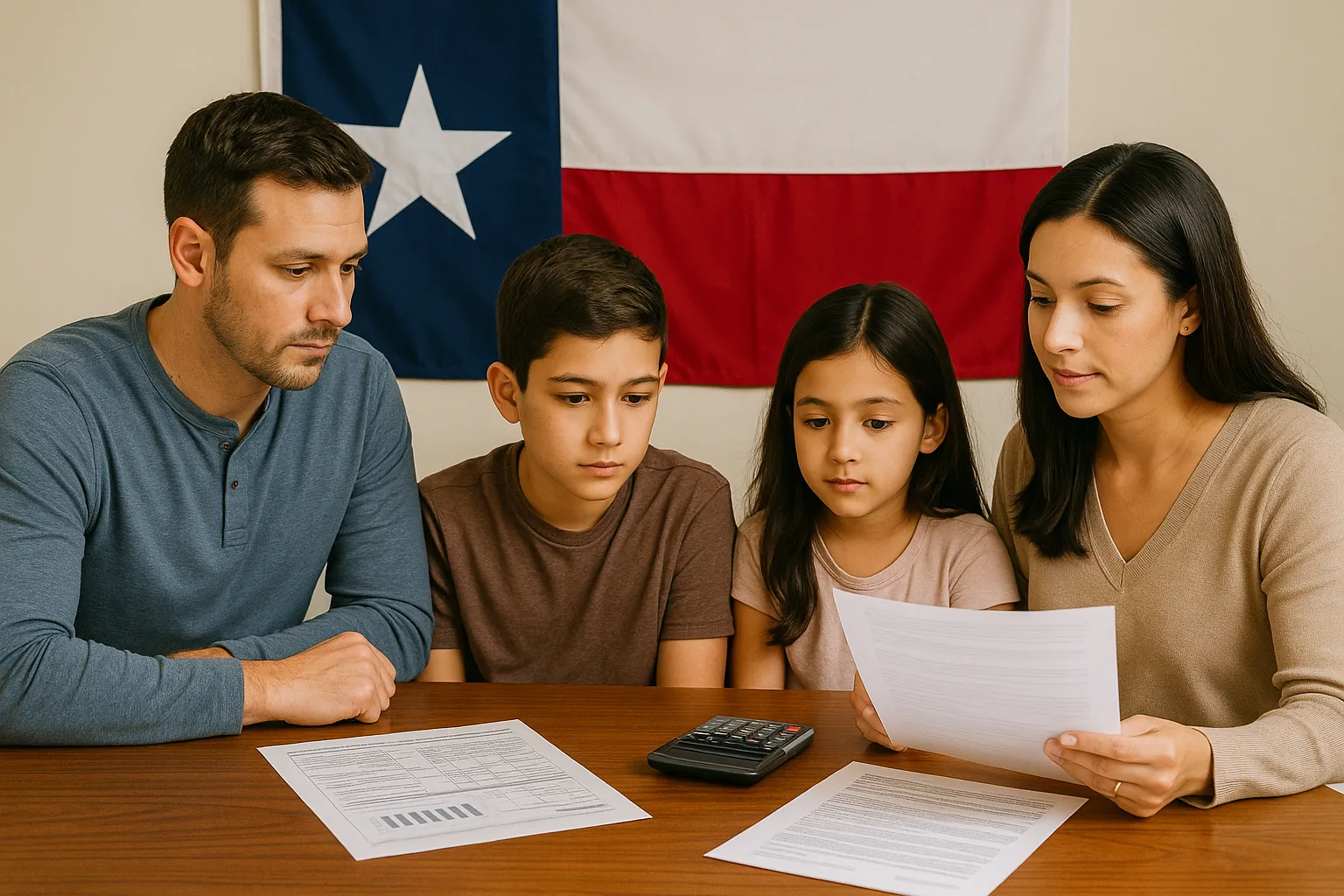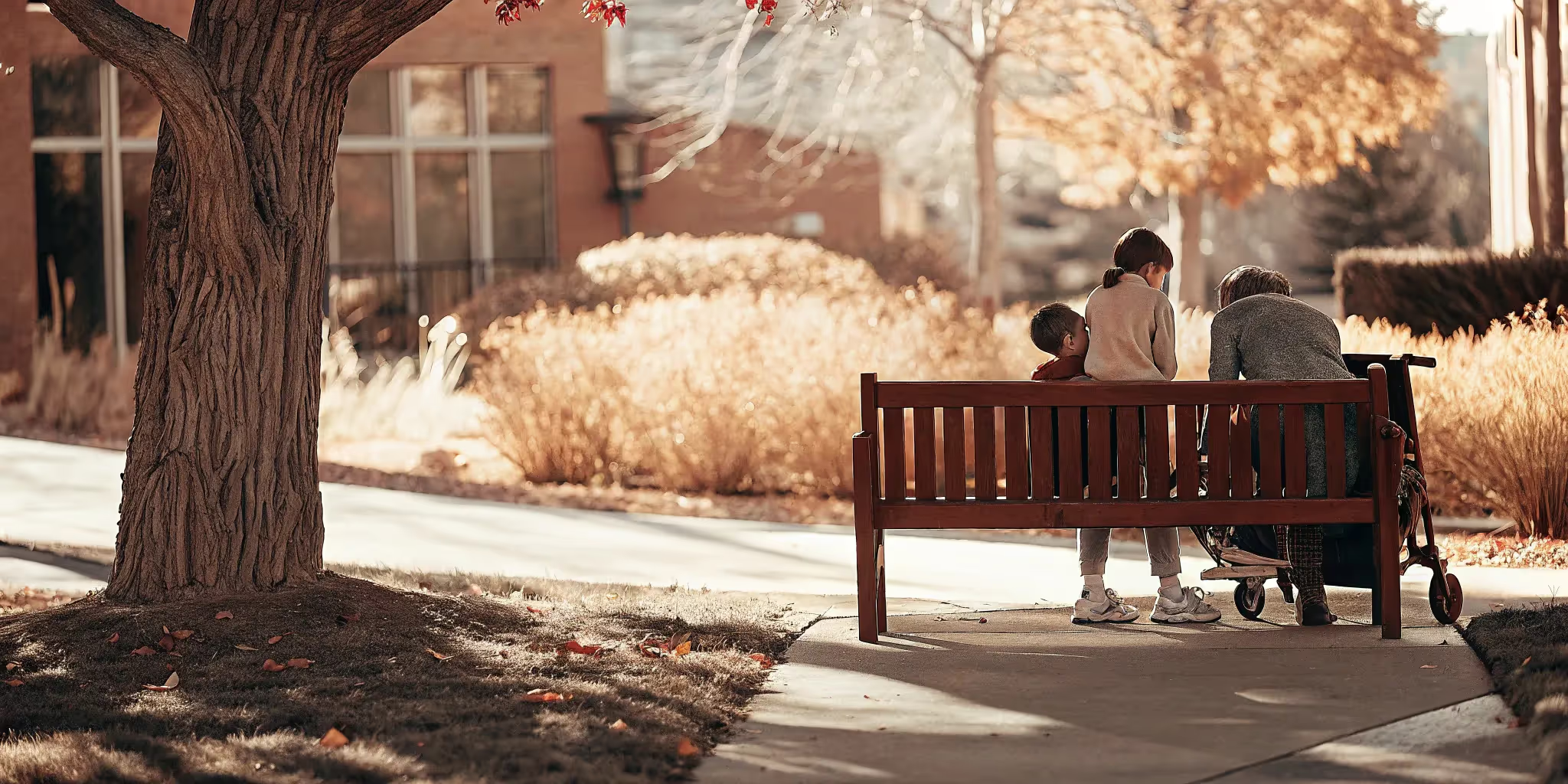Autism Resources in Pueblo, Colorado: A Family Guide

Building a support system for your child with autism goes far beyond clinical services and therapy appointments. It’s about finding your community—a network of other parents who understand, programs where your child feels they belong, and local advocates who have your back. This sense of connection is the foundation for a resilient and thriving family. While finding the right care is critical, finding your people is what makes the journey feel less lonely. This guide will help you do both. We’ll introduce you to the parent groups, sibling support programs, and community activities that make up the fabric of
autism resources pueblo colorado
Key Takeaways
- Connect with Pueblo’s Core Resources First: You don't have to search far for help. Start by reaching out to established local organizations like the Soaring Eagles Center for Autism and The Arc of Pueblo for everything from diagnosis and therapy to community support.
- Assemble a Full Support Network: A strong plan includes more than just therapy. Prioritize securing educational support through an IEP, looking into financial aid like Medicaid and grants, and finding personal support through parent groups and respite care.
- Know Your Rights to Be an Effective Advocate: Understanding the system is your greatest tool. Learn about your child’s educational rights, Colorado’s insurance mandates, and how to coordinate care to ensure your child receives the consistent support they are entitled to.
Your Guide to Autism Support in Pueblo
Finding the right support for a child with Autism Spectrum Disorder (ASD) can feel like a monumental task, but you don’t have to do it alone. Pueblo has a dedicated community of providers and organizations ready to help your family. Understanding the local landscape—both the common challenges and the available resources—is the first step toward building a strong support system for your child and family. This guide offers a starting point for families and clinicians to find the services and community connections available right here in Pueblo.
Common Hurdles for Families
If you’ve felt frustrated trying to find help, know that you’re not alone. Many families in Pueblo encounter challenges, starting with geography. Living outside a major metropolitan area can mean less access to care for ASD simply because there are fewer specialists nearby. This can lead to long waitlists and stressful travel for appointments. Beyond logistics, communication barriers can add another layer of complexity at home. It can be tough when a child with ASD has a hard time expressing their wants or dislikes, which can lead to misunderstandings and difficult moments. Recognizing these behavior challenges is a key part of finding effective strategies and support for the whole family.
What Services Are Available?
Despite the hurdles, Pueblo is home to several fantastic organizations dedicated to supporting the local autism community. Soaring Eagles Center for Autism (SECA) is a great example; this non-profit was founded in 2001 specifically because local families needed more affordable and accessible services. For families seeking diagnosis and therapy, the Family Support Center offers specialized services, including ABA therapy, for children across Southern Colorado. Another key resource is The Arc of Pueblo, which provides everything from educational advocacy to guardianship services, connecting families with the tools they need. These local centers are complemented by statewide programs that offer a broader guide to autism benefits and services, ensuring you have multiple avenues for finding support.
Key Local Support Centers in Pueblo
Finding the right local support is a game-changer for families navigating autism. Pueblo is home to several incredible organizations dedicated to providing services, resources, and a sense of community. These centers are often the first point of contact for families seeking everything from initial diagnoses to ongoing therapy and advocacy. They understand the local landscape and can connect you with the specific help your family needs. Think of these organizations as your local team, ready to support you and your child at every stage. Below are a few key players in the Pueblo area that have established themselves as vital resources for the community.
Soaring Eagles Center for Autism (SECA)
Soaring Eagles Center for Autism is a non-profit organization that has been a cornerstone of the Pueblo community since 2001. It was founded to address the critical lack of affordable autism services in the region, and it continues to fill that role today. SECA offers a range of programs designed to support children with Autism Spectrum Disorder (ASD) and their families, not just in Pueblo County but across Colorado and even in neighboring states. As a non-profit, its mission is centered entirely on providing assistance and fostering a supportive environment where children can thrive.
Family Support Center
For many families, getting a timely diagnosis is the first major step. The Family Support Center is an essential resource for this, offering autism diagnoses and specialized Applied Behavior Analysis (ABA) therapy in Southern Colorado. Their work is crucial for families who need clear, effective treatment options to help their children develop new skills and manage daily challenges. By providing both diagnostic services and evidence-based therapy under one roof, they help streamline the process for parents who are just beginning to put together a care plan for their child.
The Arc of Pueblo
Support goes beyond therapy and medical services; it also includes advocacy. The Arc of Pueblo is the local chapter of a national organization that champions the rights of individuals with intellectual and developmental disabilities (I/DD). This group is a powerful voice in the community, working to ensure that people with disabilities have the same opportunities as everyone else. For families, The Arc can be an invaluable partner in understanding and securing educational rights, accessing community resources, and connecting with a network of advocates who are passionate about inclusion.
Additional Healthcare Providers
While this list highlights a few key centers, it's just the beginning. The journey to find the right services can sometimes feel complex, but it's important to remember that a wide array of autism benefits and services in Colorado are available. From specialized medical providers to state-funded programs, there are numerous avenues for support designed to improve the quality of life for individuals with autism and their families. Taking the time to explore all the available options can help you build a comprehensive support system tailored to your child’s unique needs.
Finding the Right Treatment and Therapy
After receiving a diagnosis, your focus naturally shifts to what comes next. Finding the right therapy for your child can feel like a huge task, but it’s really about putting together the right pieces of a puzzle to support their unique needs. The goal is to create a comprehensive plan that helps your child learn, grow, and feel their best. Pueblo is home to a wonderful network of providers who offer a variety of evidence-based treatments. From behavioral therapy to programs that build social skills, you have excellent options for creating a supportive and effective care plan.
Applied Behavior Analysis (ABA) Therapy
You’ll likely hear a lot about ABA therapy, as it’s one of the most widely recognized treatments for children with autism. At its core, ABA is a personalized approach that uses positive reinforcement to help improve communication, social skills, and daily living activities. In Southern Colorado, the Family Support Center is a fantastic resource that offers both quick autism diagnoses and ABA therapy tailored to your child’s specific goals. Their team is focused on creating compassionate and effective interventions that help your child build the skills they need for a more independent and fulfilling life.
Speech and Occupational Therapy
A child’s development is complex, which is why a team-based approach to therapy can be so powerful. Many children thrive when they receive a combination of services that address different needs at once. At the Family Support Center, a multidisciplinary team of ABA therapists, speech therapists, occupational therapists, and psychologists works together to build comprehensive treatment plans. This integrated strategy ensures that every aspect of your child's development—from communication and motor skills to sensory processing—is supported in a coordinated way, leading to more holistic and lasting progress.
Mental Health Services
Supporting your child’s emotional well-being is just as critical as focusing on their behavioral and developmental goals. It can feel overwhelming to figure out where to turn for mental health resources, but you don’t have to do it alone. Organizations like The Arc of Pueblo are incredible advocates for families, offering educational advocacy and public policy support. Their work helps ensure that families of individuals with intellectual and developmental disabilities get the guidance they need, empowering you to champion your child’s mental health every step of the way.
Social Skills Programs
Helping your child build confidence in social situations can open up a world of friendships and community connection. Programs designed specifically for this can provide a safe and structured environment for children to practice these important skills. The Soaring Eagles Center for Autism (SECA) offers a Social Skills Therapy Program created just for children with Autism Spectrum Disorder. In this supportive setting, the program focuses on helping kids develop essential social skills, which can lead to better interactions and more meaningful relationships with their peers.
Educational Programs and School Support
Navigating the educational system can feel like a full-time job, but you don’t have to do it alone. Pueblo offers a structured network of programs designed to support children with autism from birth through their school years. Understanding these services, from early intervention to special education programs, is the first step toward securing the resources your child needs to thrive in a learning environment. These programs are designed to identify needs early and create a supportive, individualized path forward for every student.
Early Intervention Services
For children from birth to age three, Early Intervention (EI) services are a game-changer. These programs provide vital support during a critical developmental period, focusing on therapies that help your child build essential skills. One of the most important things to know is that you don't need a formal diagnosis to get started. According to the Children's Clinic of Pueblo, "referrals can be made without a diagnosis." This means if you have any concerns about your child's development, you can seek help right away. Their Autism Toolkit is a great starting point for families looking to understand and access these foundational services.
Special Education in Schools
Once a child enters the school system, support often comes in the form of an Individualized Education Program (IEP). An IEP is a legal document that outlines your child's specific learning goals and the services the school will provide to meet them. The process begins with a referral, which leads to a meeting to determine if your child is eligible for special education services. Pueblo School District 60’s Exceptional Student Services (ESS) department manages this process, ensuring that each IEP is reviewed at least once every 365 days to adapt to your child’s changing needs and progress.
School District Programs
To determine if a student is eligible for special education services with an Autism Spectrum Disorder (ASD) classification, school districts follow a comprehensive evaluation process. The Colorado Department of Education provides a framework that identifies six key components for this educational evaluation. These state-level guidelines for ASD evaluation ensure that assessments are thorough, fair, and consider all aspects of a child’s learning profile. This standardized approach helps create a clear picture of a student's strengths and challenges, which is essential for developing an effective and truly individualized IEP.
Child Find Services
If you have a young child (birth to five years old) and are concerned about their development, Child Find is an invaluable resource. This statewide program is designed to identify children who may have developmental delays and could benefit from early support. At no cost to parents, Child Find teams evaluate how a child plays, learns, speaks, behaves, and moves. The goal is to connect families with necessary services as early as possible. The Colorado Department of Public Health and Environment offers more information on how this program can help you get the answers and support you need for your little one.
Statewide Support Programs in Colorado
While Pueblo has some fantastic local resources, it's also helpful to know about the broader support systems available across Colorado. The state has several key programs designed to assist families and individuals with autism, from providing direct services to helping with healthcare costs and insurance coverage. Tapping into these statewide programs can open up more opportunities and provide a stronger safety net for your family. Let's walk through some of the most important ones so you know what's available and how to get started.
Division for Developmental Disabilities
For adults with Autism Spectrum Disorder (ASD), Colorado’s Division for Developmental Disabilities (DIDD) is a critical resource. This division focuses on enhancing quality of life and fostering independence through a variety of services. They offer residential options, structured day programs, and supported employment programs to help adults with developmental disabilities thrive in their communities. If you're planning for long-term care and support for an adult family member, exploring the services provided by the DIDD is an essential step. Their programs are designed to provide stability and opportunities for continued growth and community integration.
Family Support Services
Caring for a child with developmental disabilities can come with unique financial and logistical challenges. That's where the Family Support Services Program (FSSP) comes in. This statewide program is a lifeline for many, helping families access the services they need. It also provides financial support to cover costs that insurance might not, such as respite care, therapies, or specialized equipment. The FSSP is designed to be flexible, empowering families to get the specific help that makes the biggest difference for their situation. It’s a vital resource for easing the strain and ensuring your family has what it needs to succeed.
Healthcare Benefits
Getting a handle on the healthcare system can feel overwhelming, but you don't have to do it alone. The Health Care Program for Children and Youth with Special Health Care Needs (HCP) is specifically designed to help. This program acts as a connector, linking families of children with special health needs to the right care providers and community resources. The goal is to make sure your child gets the necessary healthcare services without unnecessary hurdles. Whether you need help finding a specialist, coordinating care, or understanding your options, the HCP team can provide guidance and support to streamline the process for your family.
Insurance Coverage Guidelines
Understanding what your insurance covers is a huge piece of the puzzle. In Colorado, the Autism Insurance Mandate, established by Senate Bill 09-244, is a game-changer for many families. This law requires many health insurance plans to provide coverage for autism services, including crucial treatments like ABA therapy. This mandate is designed to alleviate the significant financial burden that can come with intensive therapies. It’s essential to review your specific plan and understand your rights under this law to ensure you are getting the full benefits you're entitled to for your child's care.
How to Find Financial Assistance
One of the most significant challenges for families is figuring out how to pay for essential therapies and support services. As a BCBA, you can be an incredible resource by helping them understand the financial assistance available in Colorado. The good news is that several state programs, grants, and other funding sources are in place to help ease the financial burden. Guiding families toward these options can make a world of difference in their ability to access consistent, high-quality care for their child.
Colorado Medicaid Benefits
For many families, the first stop for financial support should be Colorado's Medicaid program, Health First Colorado. It’s important for families to know that a formal autism diagnosis isn't always required to get coverage for behavioral therapy in the state. The Colorado Autism Insurance Mandate also requires many private health insurance plans to cover services for autism spectrum disorder, including diagnosis and treatment. This mandate provides significant coverage for young children, with limits of up to $50,000 for those up to age six and at least $34,000 per year for ABA therapy for children from birth to age nine. This can substantially offset the costs of intensive early intervention.
Applying for Grants
Beyond insurance and Medicaid, grants can fill crucial funding gaps. You can point families toward national organizations like Autism Speaks, which offers grants for various social and educational activities. Locally, the Family Support Services Program (FSSP) is a fantastic resource that helps families with developmental disabilities find services and obtain funds for costs that insurance doesn’t cover. Another key program is the Colorado Fund for People with Disabilities (CFPD), which manages special needs trusts. These trusts allow individuals to pay for disability-related expenses without jeopardizing their eligibility for essential government benefits, providing long-term financial security.
Other Funding Sources
It’s also helpful to be aware of other state and private funding streams. The Division for Intellectual and Developmental Disabilities (DIDD) provides vital services for adults with ASD, including housing, day programs, and employment support, which are critical for long-term planning. Additionally, private, non-profit organizations across the state, such as Firefly Autism, often provide training in essential life skills like communication and self-care. These organizations can be excellent partners in a child’s overall care plan, offering specialized programs that complement traditional therapies and support a well-rounded approach to development.
Building Your Family and Community Network
Navigating the world of autism support can feel overwhelming, but you don't have to do it alone. Building a strong network for your family is just as important as finding the right clinical services. This network becomes your go-to for advice, emotional support, and shared experiences. It’s about finding people who truly understand what you’re going through—other parents who can share tips over coffee, siblings who can connect with others in the same boat, and community programs that offer a place for your child to thrive.
In Pueblo, there are dedicated groups and services designed to help you create these connections. From parent meetups that grow into vital community centers to recreational activities that foster friendships, these resources are the threads that weave a stronger, more resilient family and community fabric. Tapping into this local support system can provide a sense of belonging and practical help that makes a world of difference for you, your child with autism, and your entire family. It’s about finding your people and creating a circle of support you can lean on.
Connecting with Parent Support Groups
There’s a unique comfort in talking to someone who just gets it. Parent support groups offer a safe space to share triumphs and challenges with others who are on a similar path. These groups are more than just a place to vent; they are incredible sources of practical advice, local recommendations, and lasting friendships. Many of Pueblo’s most vital resources began this way. For example, the Soaring Eagles Center for Autism started as a small parent support group and grew into a center offering a wide array of services. This shows just how powerful it can be when parents come together to support one another and build something lasting for the community.
Finding Support for Siblings
The journey with autism touches every member of the family, and siblings have their own unique experiences and needs. It’s important for them to have a space where they feel understood and can connect with other kids who know what it’s like to have a sibling with autism. Local organizations recognize this and provide tailored resources. The Children's Clinic of Pueblo highlights programs that spread awareness and offer support through story columns, a resource database, monitored video conversations, and sibling chat forums. These outlets give siblings a voice and help them build their own supportive community, ensuring they feel just as seen and valued.
Accessing Respite Care
Being a caregiver is a demanding role, and it's essential to take breaks to recharge. Respite care provides that crucial opportunity for rest, allowing you to step away for a few hours or even a weekend, knowing your child is in good hands. Think of it as a necessary tool for maintaining your own well-being so you can continue to be the best parent possible. As the Soaring Eagles Center for Autism explains, respite care services provide short-term care for a person with ASD, giving families a much-needed break. Prioritizing this time for yourself isn't selfish—it's a vital part of sustainable, healthy family life.
Local Recreational Activities
Every child deserves the chance to play, make friends, and be part of a team. Recreational activities offer a fantastic way for children with autism to build social skills, get active, and discover new passions in a fun, low-pressure environment. In Pueblo, community members have created amazing opportunities for this. For instance, one local family started the nonprofit organization 'Autism Mana' to help kids with autism exercise and find a sense of community. Programs like this do more than promote physical health; they foster belonging and create a space where kids can connect, build confidence, and just be kids.
How to Access and Coordinate Care
Getting a diagnosis and setting up a care plan can feel like a huge undertaking, but you don’t have to figure it all out at once. The key is to take it one step at a time, from the initial assessment to coordinating all the different services your child needs. Think of it as building a support system piece by piece. This process involves working with healthcare providers, schools, and local agencies to create a cohesive plan that supports your child’s development and well-being. Let’s walk through the essential steps to get you started.
The Assessment Process
The first step toward getting support is often an assessment, but it’s important to know that you don’t need to have all the answers beforehand. In fact, many early intervention services allow you to start the process without a formal diagnosis. As the Children's Clinic of Pueblo notes, "Referrals can be made without a diagnosis. This means the person referring does not have to know the reason for your child's developmental delays." This flexibility is designed to get children help as soon as a need is identified. If you have concerns, reach out to your pediatrician or a local support center to initiate an evaluation.
Developing a Care Plan
Once your child is assessed, the next step is creating a care plan. If your child is school-aged, this will likely involve developing an Individualized Education Program (IEP). The process is structured to ensure your child receives tailored support. According to Pueblo School District 60’s Exceptional Student Services, "The IEP process begins with a referral, followed by an IEP meeting to determine eligibility." An IEP is a living document that must be reviewed at least once a year to make sure it continues to meet your child’s needs as they grow and change.
Tips for Service Coordination
Coordinating various therapies, appointments, and school services can be challenging, especially for families in less populated areas. Research shows that "families living outside metropolitan areas have less access to care for ASD than those in urban areas, often due to a shortage of specialists." To manage this, it helps to be proactive. Keep a central binder or digital file with all reports, contacts, and appointments. Don’t hesitate to ask your primary care provider or BCBA to act as a central point of contact to help streamline communication between different specialists and tackle healthcare access barriers.
Finding Transportation Support
Consistent access to services often depends on reliable transportation, which can be a significant hurdle for many families. If getting to and from appointments is a concern, local agencies may be able to help. The Pueblo County Department of Human Services, for example, is dedicated to empowering "individuals and families to see their potential and improve their quality of life." Organizations like this often have programs or can connect you with resources that provide transportation assistance for medical and therapeutic appointments, ensuring your child doesn’t miss out on essential care.
How to Access and Coordinate Care
Getting a diagnosis and setting up a care plan can feel like a huge undertaking, but you don’t have to figure it all out at once. The key is to take it one step at a time, from the initial assessment to coordinating all the different services your child needs. Think of it as building a support system piece by piece. This process involves working with healthcare providers, schools, and local agencies to create a cohesive plan that supports your child’s development and well-being. Let’s walk through the essential steps to get you started.
The Assessment Process
The first step toward getting support is often an assessment, but it’s important to know that you don’t need to have all the answers beforehand. In fact, many early intervention services allow you to start the process without a formal diagnosis. As the Children's Clinic of Pueblo notes, "Referrals can be made without a diagnosis. This means the person referring does not have to know the reason for your child's developmental delays." This flexibility is designed to get children help as soon as a need is identified. If you have concerns, reach out to your pediatrician or a local support center to initiate an evaluation.
Developing a Care Plan
Once your child is assessed, the next step is creating a care plan. If your child is school-aged, this will likely involve developing an Individualized Education Program (IEP). The process is structured to ensure your child receives tailored support. According to Pueblo School District 60’s Exceptional Student Services, "The IEP process begins with a referral, followed by an IEP meeting to determine eligibility." An IEP is a living document that must be reviewed at least once a year to make sure it continues to meet your child’s needs as they grow and change.
Tips for Service Coordination
Coordinating various therapies, appointments, and school services can be challenging, especially for families in less populated areas. Research shows that "families living outside metropolitan areas have less access to care for ASD than those in urban areas, often due to a shortage of specialists." To manage this, it helps to be proactive. Keep a central binder or digital file with all reports, contacts, and appointments. Don’t hesitate to ask your primary care provider or BCBA to act as a central point of contact to help streamline communication between different specialists and tackle healthcare access barriers.
Finding Transportation Support
Consistent access to services often depends on reliable transportation, which can be a significant hurdle for many families. If getting to and from appointments is a concern, local agencies may be able to help. The Pueblo County Department of Human Services, for example, is dedicated to empowering "individuals and families to see their potential and improve their quality of life." Organizations like this often have programs or can connect you with resources that provide transportation assistance for medical and therapeutic appointments, ensuring your child doesn’t miss out on essential care.
Know Your Rights: Advocacy and Legal Aid
Understanding your rights is one of the most powerful tools you have. When you're supporting a child with autism, knowing the laws and systems in place can make a world of difference in getting the care and resources they deserve. It’s about ensuring your child has every opportunity to succeed, whether that’s in the classroom, at the doctor’s office, or during a crisis. Advocacy can feel like a full-time job, but you don’t have to do it alone. There are legal frameworks and local organizations designed to protect your child’s access to education and healthcare. Learning how to use these resources helps you become your child’s most effective champion, ensuring their needs are met and their voice is heard.
Your Child's Educational Rights
Every child is entitled to a fair and appropriate public education, and there are specific laws to protect that right for children with disabilities. The cornerstone of this is the Individualized Education Program (IEP), a legally binding document that outlines the specific goals, services, and support your child will receive at school. According to Pueblo School District 60’s Exceptional Student Services, "An Individualized Education Program (IEP) must be reviewed at least once every 365 days. The IEP process begins with a referral, followed by an IEP meeting to determine eligibility." If you believe your child needs additional support, you can request an evaluation from the school to start this process.
Securing Healthcare Access
Getting consistent, quality healthcare can be a major challenge, especially for families in more remote areas. Research shows that "families living outside metropolitan areas have less access to care for Autism Spectrum Disorder (ASD) than those in urban areas, often due to a shortage of specialists." This gap can lead to long waitlists and significant travel time for appointments. To address these healthcare access barriers, start by speaking with your primary care physician about referrals and exploring telehealth options. Many specialists now offer virtual consultations, which can be a great way to connect with providers without the burden of travel.
Finding Emergency Support
There may be times when your family needs immediate assistance, and it’s important to know where to turn. The Pueblo County Department of Human Services is a key local resource for families facing urgent situations. Their mission is to "empower individuals and families to see their potential and improve their quality of life." This department can connect you with crisis intervention services, emergency financial assistance, and other essential support systems. Don't hesitate to reach out if you are feeling overwhelmed or are in a crisis; these services are in place to provide a safety net for the community.
Creating a Crisis Management Plan
Being proactive is key to managing challenging situations. A crisis management plan is a simple document that outlines exactly what to do when your child is experiencing a severe behavioral episode. It can include contact information for your support team, de-escalation techniques that work for your child, and information about their triggers. The goal is to "short-cut the uphill battle individuals and families undertake when faced with autism." Having a clear, written plan helps ensure everyone on your child’s care team, from family members to teachers, can respond consistently and effectively. You can find templates and guidance in local autism resources.
Related Articles
- Complete Guide to Autism Resources in Denver, Colorado
- Complete Guide to Autism Resources in Fort Collins, CO - Alpaca Health
- Guide to Autism Resources in Aurora, Colorado - Alpaca Health
- Your Guide to Autism Resources in Loveland, CO - Alpaca Health
Frequently Asked Questions
This all feels overwhelming. Where is the best place to start? Taking that first step is the hardest part, but you don't have to have it all figured out. A great starting point is to contact your child's pediatrician to discuss your concerns. They can guide you toward an initial assessment. You can also reach out directly to a local organization like the Family Support Center or Soaring Eagles Center for Autism. Their teams are experienced in helping families navigate these early stages and can connect you with the right initial services.
Can my child get help even without an official autism diagnosis? Yes, absolutely. Many early intervention services are available based on developmental concerns, not a specific diagnosis. Programs like Child Find are designed to evaluate young children and connect them with support as early as possible, at no cost to you. The goal is to provide help as soon as a need is identified, so please don't wait for a formal label if you have concerns about your child's development.
How can my family afford these therapies and services? Figuring out the financial side is a major concern for many families, but there are several systems in place to help. Colorado's Medicaid program and the state's Autism Insurance Mandate ensure that many private insurance plans cover essential treatments like ABA therapy. Beyond insurance, you can look into statewide programs like the Family Support Services Program (FSSP) for grants that help cover costs that insurance might not.
What kind of support is available for our whole family, not just my child with autism? Supporting your entire family unit is crucial. You can find parent support groups, like the one that grew into the Soaring Eagles Center, to connect with others who share your experience. There are also specific resources for siblings, including online forums and local programs that help them connect with peers. Don't forget about respite care, which provides short-term relief for caregivers so you can rest and recharge.
What are my child's rights when it comes to school? Your child has a legal right to a free and appropriate public education tailored to their needs. This is formalized through an Individualized Education Program (IEP), which is a legally binding document the school develops with you. It outlines specific goals and the services your child will receive. If you feel your child needs support, you have the right to request an evaluation from the school district to begin the IEP process.
High Quality, Local ABA
If you are ready to partner with a local BCBA and receive the highest quality of care, reach out today!













